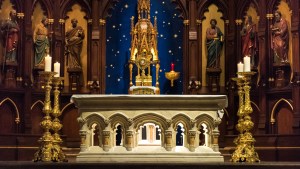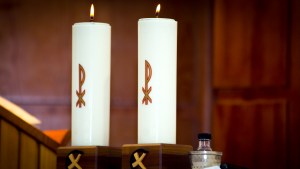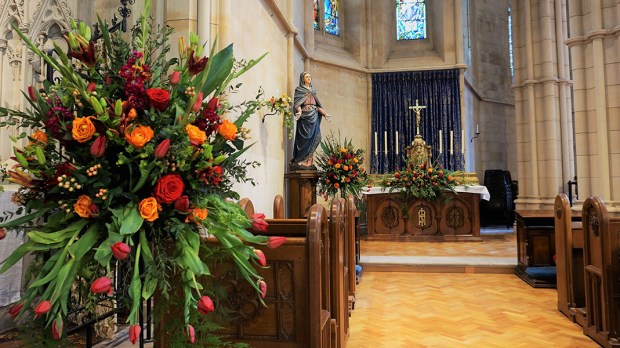In many Catholic churches flowers are the most commonly used decorations in the sanctuary. They can be found surrounding the altar at Mass, or in front of statues and other prominent works of art.
While they might seem like an “afterthought,” the Church actually has distinct rules and regulations regarding flowers and makes use of them for specific spiritual symbolism.
Resticted during Advent and Lent
For example, the General Instruction of the Roman Missal explains, “Floral decoration should always show moderation and be arranged around the altar rather than on the altar table.” Additionally, “During Advent the floral decoration of the altar should be marked by a moderation suited to the character of this time of year, without expressing in anticipation the full joy of the Nativity of the Lord. During Lent it is forbidden for the altar to be decorated with flowers. Exceptions, however, are Laetare Sunday (Fourth Sunday of Lent), Solemnities, and Feasts.”
In this aspect flowers are meant to express joy, and is why they are restricted during the somber seasons of Advent and Lent.
Symbols of Joy
Additionally, flowers serve the purpose of reminding us of God’s creation and the beauty of his handiwork. Nikolaus Gihr in his book, The Holy Sacrifice of the Mass, elaborates on this spiritual meaning.
A holy religious, the Capuchin Francis Borgia, used to say: “God has left us from Paradise three things: the stars, the flowers and the eyes of a child.” In fact, flowers have in God’s creation a place entirely their own; they are on the globe of the earth what the stars are in the canopy of heaven — uneffaced traces of a former world, the earthly Paradise, the least affected by the curse of sin. In the splendor of their colors, in their fragrance, they are revelations of the beauty and goodness of God, emblems of His benevolence, images of His first, true designs (Isa. 25, 1)
Flowers also remind us of the spiritual life and the virtues we should acquire within our hearts.
Flowers also symbolize those supernatural prerogatives, graces and virtues with which the soul should be adorned; for the saints bloom as the lily and they are in the presence of God as the odor of balsam. Flowers, by reason of their freshness and beauty which they receive from the sun and which they turn towards it, are emblems of that innocence and holiness we derive from Christ, the Sun of Justice, and with which we again glorify Him as the Sun of our spiritual life. — The flowers on the altar signify, moreover, that the blossoms of grace, prayer and virtue unfold in the supernatural light and in the heavenly warmth which radiates from the sun of the Eucharistic Sacrifice.
The next time you attend Mass and see flowers adorn the sanctuary, recall the multiple levels of symbolism and raise your heart to God as you enter into the celebration of the Eucharist.

Read more:
The spiritual symbolism of stone altars

Read more:
Why do Catholics use candles at Mass?

